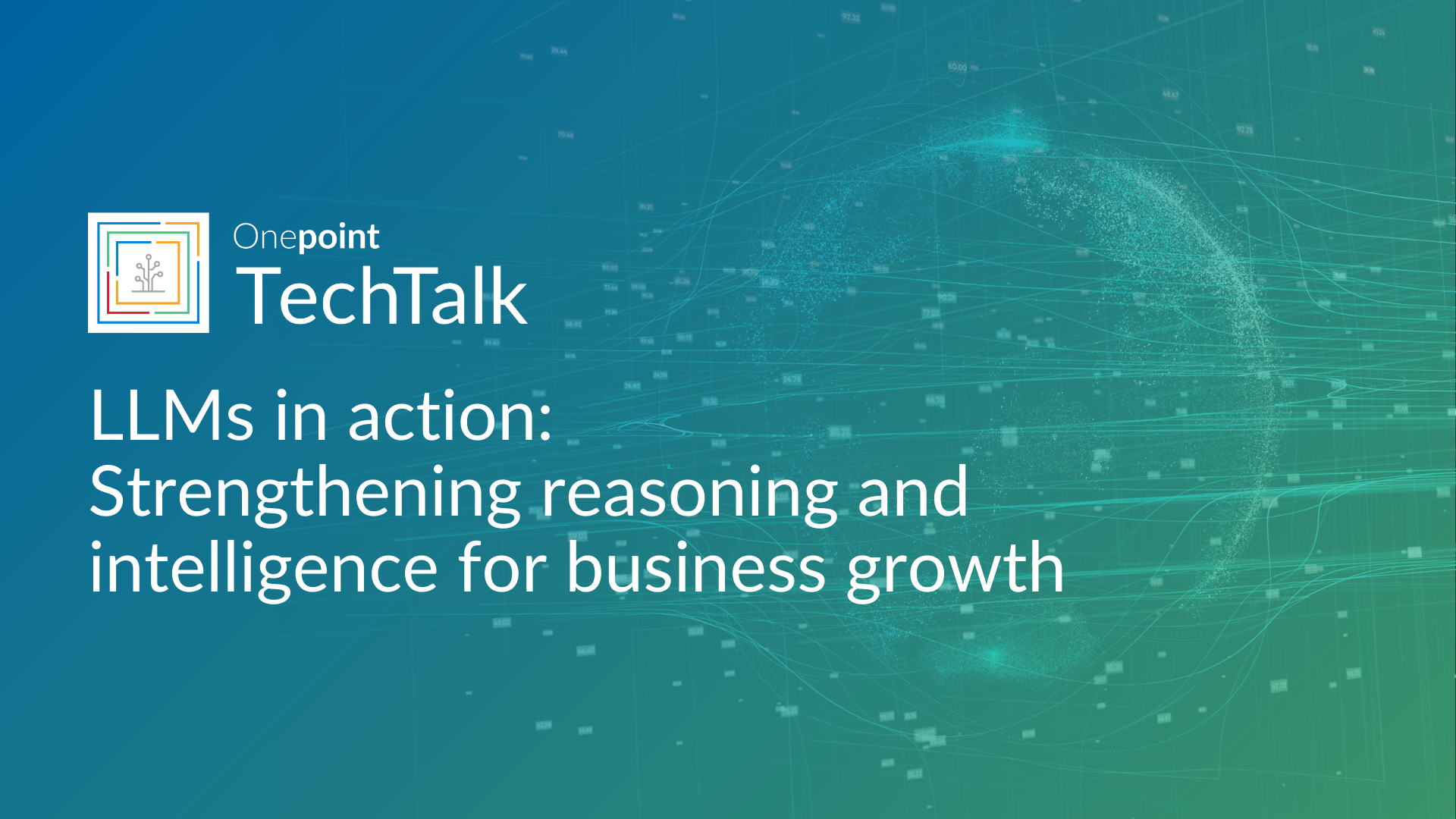
In the ever-evolving landscape of artificial intelligence, Large Language Models (LLMs) have emerged as powerful tools for businesses. They excel in generating text, automating tasks, and even crafting personalised experiences. However, despite their impressive capabilities, LLMs have certain limitations. They struggle with complex reasoning and long-term planning, and lack access to the most up-to-date information as well as enterprise proprietary knowledge.
Why does enhancing LLMs’ reasoning capabilities matter for business leaders?
Here are a few illustrations of how LLMs can add value:
Better decision-making: Advanced LLMs can provide data-driven insights for more informed and strategic business decisions.
Improved customer experience: Personalised, context-aware interactions can increase customer satisfaction and loyalty.
Operational efficiency: Automating complex processes like contract analysis and forecasting can free up employees for strategic tasks and optimises resource allocation.
Innovation and competitiveness: LLMs can generate innovative ideas and assist in strategic planning, helping businesses stay ahead in fast-changing markets.
Cost efficiency: LLMs can identify errors, lead to cost savings, and scale efficiently without proportionally increasing headcount.
Competitive edge: LLMs can enable faster responses to market changes and support data-driven strategies, keeping businesses competitive.
Compliance and ethics: LLMs can help ensure ethical decision-making and regulatory compliance, reducing legal risks.
Enhancing LLMs with reasoning and knowledge access
So, how can businesses enhance the reasoning abilities of LLMs to create more business value?
[Webinar promo graphic]
In an upcoming webinar [link to the webinar page], we explore several advanced techniques to achieve this:
Enhancing reasoning capabilities: We delve into techniques like Chain of Thoughts, Induced Chain of Thoughts, and Tree of Thoughts, which allow LLMs to reason more effectively and make better decisions.
Knowledge augmentation techniques: Learn how to apply techniques like Retrieval-Augmented Generation (RAG) and GraphRAG (which combines knowledge graphs with RAG) to LLM-based workflows, enabling them to access and utilise the latest and most relevant information.
Exploring cutting-edge research: We touch on some of the latest research in LLMs, including energy-based models and innovations like OpenAI’s Strawberry, which aim to enhance the reasoning abilities of AI models, enabling them to plan, execute complex tasks, and conduct autonomous research.
We hope you will gain useful insights and inspiration into unlocking LLMs' full potential, driving innovation, improving decision-making, and creating a competitive edge in your market.
Grab this opportunity to learn how to integrate these advanced techniques into your business strategy.
[https://www.onepointltd.com/techtalk/unleashing-the-power-of-large-language-models-part-2-workflows-and-complex-interactions/]
#AI #LLMs #GenAI #DataInnovation #DigitalTransformation #BusinessInnovation #DecodingAI #OnepointTechTalk #OnepointConsulting









